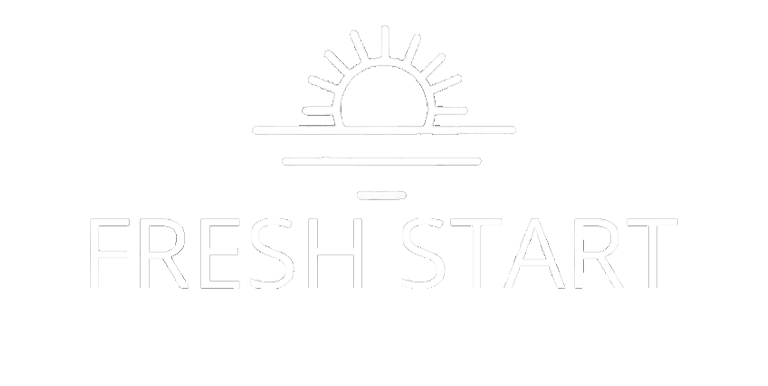our programs
At Fresh Start of California, we offer comprehensive treatment programs that support individuals through every phase of their recovery journey. Our holistic approach goes beyond addressing the physical symptoms of addiction to explore the emotional and psychological roots that contribute to substance use. By integrating medical care, therapy, and personalized support, we empower individuals to reclaim their lives and build a strong foundation for lasting sobriety.
Situated in the heart of Orange County, our center provides a safe, supportive, and welcoming space for healing. Whether someone is just beginning their recovery or seeking ongoing care, we tailor each treatment plan to their unique needs. Our dedicated team is here to guide every individual toward a healthier, more meaningful future—no matter where they are in their journey.


WHAT IS AN ADDICTION TREATMENT PROGRAM
An addiction treatment program is a structured, comprehensive approach aimed at helping individuals overcome substance use disorders and achieve lasting recovery. These programs offer a blend of medical care, therapeutic interventions, and supportive services to address both the physical dependence on substances and the deeper emotional and psychological causes of addiction. Depending on the individual’s needs and the severity of the addiction, treatment may range from 24/7 residential care to more flexible outpatient options.
At Fresh Start of California, we customize each treatment plan to reflect the unique circumstances of the individual. By combining evidence-based therapies, holistic practices, and medical support, we empower individuals to build effective coping strategies, restore stability, and take back control of their lives.
Our range of programs includes:
Detox Program Overview (Residential Setting)
A residential detox program provides a safe, medically supervised environment to manage withdrawal symptoms, stabilize the body, and prepare individuals for the next phase of treatment with clarity and support.
30-Day Residential Rehab Program Overview
A 30-day residential treatment program is an intensive, immersive experience designed to help individuals address the root causes of addiction, develop new coping skills, and lay the groundwork for long-term recovery.
1. Medical Assessment & Intake
Upon arrival, each client undergoes a thorough medical and psychological evaluation. This includes:
Substance use history
Physical health screening (vital signs, labs)
Mental health assessment
Risk factors (co-occurring disorders, history of withdrawal complications)
This assessment informs the personalized detox plan.
2. Stabilization
The stabilization phase involves managing withdrawal symptoms as the body eliminates substances. This often includes:
24/7 medical supervision to monitor vital signs and intervene if needed
Medication-Assisted Treatment (MAT) to ease withdrawal symptoms and reduce cravings
Hydration and nutrition support to restore physical balance
Safety protocols to prevent medical complications such as seizures, delirium tremens (DTs), or severe anxiety
3. Emotional Support
Early recovery is emotionally intense. Support during detox may include:
Brief counseling sessions to reduce fear and anxiety
Psychoeducation about addiction, withdrawal, and the recovery process
Compassionate support staff trained to handle emotional distress
4. Transition Planning
Detox is just the first step. Before completing this phase, the clinical team works with the client to develop a personalized treatment plan for the next level of care. This might include:
Residential or inpatient treatment
Partial hospitalization (PHP) or intensive outpatient (IOP) programs
Therapy and group counseling
Aftercare or relapse prevention planning
5. Typical Duration
Detox typically lasts 5 to 10 days, but the duration can vary depending on:
The substances involved
Length and severity of use
The individual’s health condition
Goals of Residential Detox
- Ensure safe, medically supervised withdrawal
- Minimize discomfort and complications
- Prepare the individual physically and mentally for long-term treatment
- Build trust and engagement with the treatment team
Week 1: Orientation & Stabilization
Goal: Establish safety, build trust, and begin the healing process.
Key Components:
Comprehensive assessments: Medical, psychological, psychiatric, and substance use history
Detox support (if not completed prior): Medical care to manage withdrawal symptoms
Introduction to the program: Rules, schedule, treatment team, peer community
Initial therapy sessions: Begin individual and group counseling
Case management: Assigned case manager begins building a treatment plan
Week 2: Core Treatment Begins
Goal: Address underlying emotional, behavioral, and psychological aspects of addiction.
Key Components:
Daily group therapy: Topics include relapse prevention, emotional regulation, trauma, family dynamics, and communication
Individual therapy (1–2x per week): One-on-one sessions with a licensed therapist
Specialized therapies: May include CBT, DBT, EMDR, motivational interviewing, etc.
Medical and psychiatric care: Medication management for mental health or cravings
Educational sessions: Focus on addiction science, coping skills, and healthy living
Week 3: Self-Discovery & Skill-Building
Goal: Strengthen recovery tools and personal insight.
Key Components:
Holistic therapies: Yoga, mindfulness, art/music therapy, fitness, or meditation
Family involvement: Family therapy sessions or educational programs (in-person or virtual)
Life skills training: Nutrition, budgeting, job readiness, and stress management
Peer support: 12-Step meetings or other mutual-aid group participation
Week 4: Transition & Aftercare Planning
Goal: Prepare for life after treatment and prevent relapse.
Key Components:
Relapse prevention planning: Identifying triggers, creating a crisis plan
Aftercare coordination: Outpatient treatment, sober living, therapy, or support groups
Final individual therapy sessions: Reflect on progress and set future goals
Discharge planning: Housing, employment, legal needs, and continued recovery support
Program Features
24/7 support: On-site medical and clinical staff
Structured daily schedule: Balancing therapy, wellness, rest, and recreation
Private or shared accommodations in a safe, sober environment
Nutritious meals prepared to support physical and mental health
Goals of a 30-Day Residential Rehab
- Achieve and maintain sobriety in a supportive, substance-free environment
- Begin to address the underlying causes of addiction
- Develop practical tools for managing cravings, stress, and relationships
- Build a personalized, actionable plan for ongoing recovery

Free Verification of Benefits
Your Insurance could cover up to 100% of the cost of treatment.
Do I Need an Addiction Treatment Program?
Recognizing when substance use has crossed the line into addiction can be difficult. However, certain warning signs suggest that professional help may be necessary. Addiction doesn’t just impact your physical health—it can also affect your mental well-being, relationships, and ability to manage daily responsibilities. Identifying the signs early can be the first step toward getting the support you need for lasting recovery.
Loss of Control
You may find yourself using substances more often or in greater amounts than you intended. Even with a desire to stop, strong cravings and compulsive use make it difficult to remain sober. This inability to control your use is a key indicator that professional treatment may be needed.
Disruption to Daily Life
Addiction often causes strain in relationships, poor performance at work or school, and difficulty managing responsibilities. If substance use is leading to conflict with loved ones, problems at your job, or neglect of important duties, it may be time to seek structured support.
Withdrawal Symptoms
Stopping substance use may trigger uncomfortable or even dangerous withdrawal symptoms—such as nausea, tremors, sweating, anxiety, or depression. These symptoms can make quitting on your own unsafe and overwhelming. Medical supervision during detox can ensure safety and increase the chances of success.
Increased Tolerance
If you need larger amounts of a substance to feel its effects, your body has likely developed a tolerance. This pattern can escalate into more frequent or risky use, increasing the likelihood of overdose and long-term health consequences. Treatment can help reverse this cycle and support your physical recovery.
Repeated Relapse
Have you tried to quit but found yourself returning to substance use? Multiple unsuccessful attempts to stop are a clear sign that structured, professional support may be necessary. Addiction treatment programs offer the tools, therapies, and guidance needed to build lasting recovery.
If any of these signs resonate with you, reaching out for help is not a sign of weakness—it’s a powerful step toward reclaiming your life.
Start Your Journey to Recovery Today
If you or someone you care about is facing the challenges of addiction, you don’t have to go through it alone. At Fresh Start of California, our dedicated team is here to offer the guidance, compassion, and expert care you need to regain control and begin the healing process.
We’ll take the time to understand your unique needs and connect you with a personalized treatment program designed to support lasting recovery.
Don’t wait to take back your life. Call us today and speak with a caring professional who can help you take the first step toward a healthier, more hopeful future. Recovery begins with a single step—and we’re here to walk it with you.

